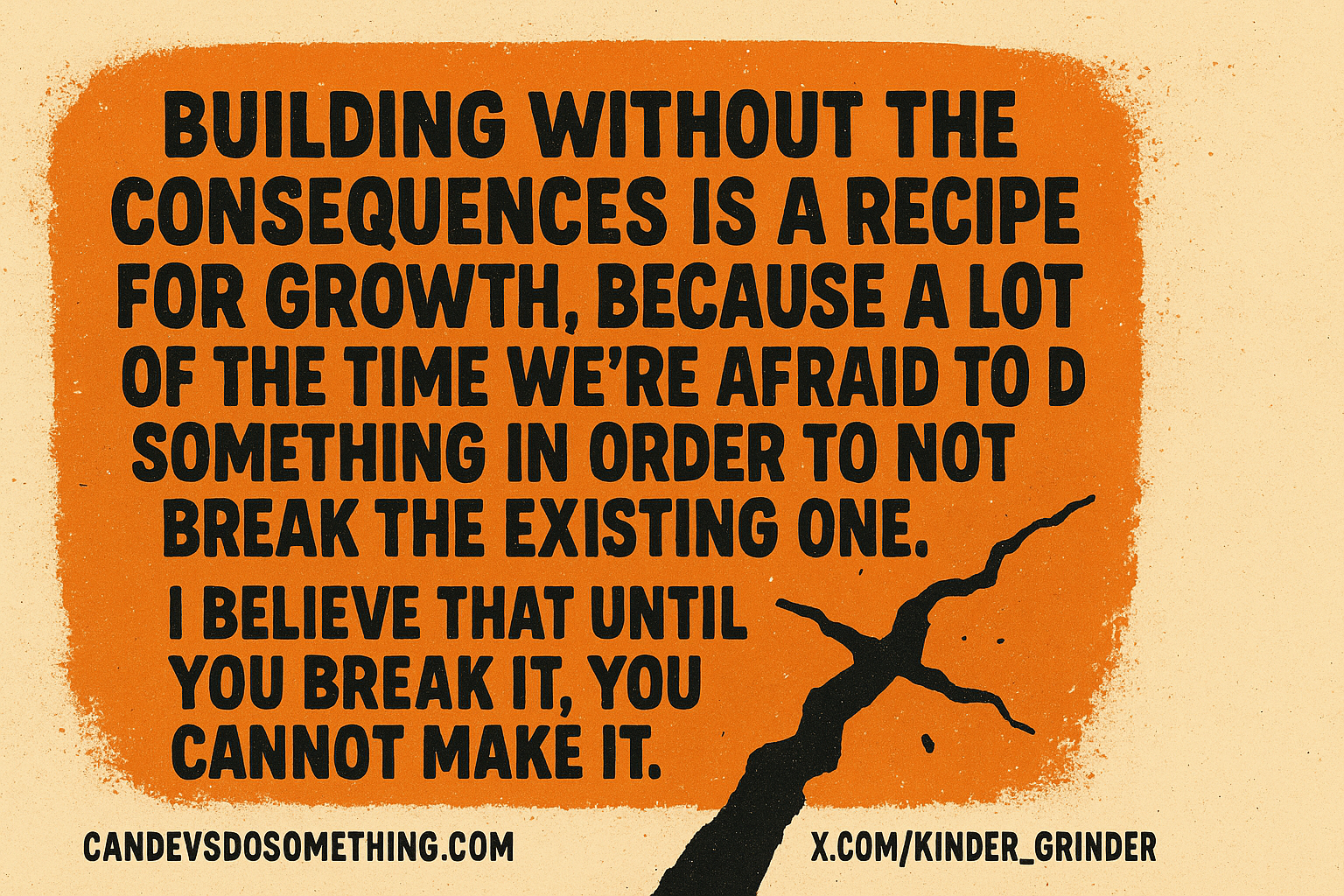Building without consequences is a recipe for growth
Building without consequences is a recipe for growth. Often, we hesitate to take action for fear of disrupting the existing system. However, I believe that until you break, you can’t make it.
Taking risks and experimenting can lead to significant advancements. It’s essential to embrace the idea that failure is a part of the learning process.
Remember, true innovation often comes from stepping outside of your comfort zone and challenging the status quo.

Key Takeaways
- •Embracing risk is essential for fostering innovation and growth in both personal and professional contexts.
- •Failure should be viewed as a learning opportunity rather than a setback, encouraging a mindset shift towards experimentation.
- •Challenging the status quo and outdated practices is necessary for meaningful advancements and continuous improvement.
- •Structured experimentation can help organizations make data-driven decisions that foster growth and avoid stagnation.
AI Research Summary
The importance of embracing risk and experimentation as vital components for growth and innovation is underscored across various sources. A common theme is the necessity to challenge the status quo and let go of outdated practices to foster a culture of continuous improvement. For instance, the concept of Experimentation-Led Growth (ELG) is introduced as a framework for businesses to integrate structured experimentation into their operations, emphasizing that taking risks is crucial for avoiding stagnation and driving innovation 2. Moreover, personal development is closely tied to risk-taking, as stepping outside one's comfort zone is vital for career advancement 3. This sentiment is echoed in discussions about radical innovation, which highlight how disruptive thinking can propel companies to market leadership by breaking away from conventional practices 4. Furthermore, viewing failure as a stepping stone to success encourages individuals and organizations to embrace uncertainty, leading to significant advancements 8. The narrative around risk-taking is not just limited to business; it extends to personal fulfillment and societal progress, reinforcing the idea that stepping out of comfort zones is necessary for growth 6. Additionally, various contributors share personal experiences that illustrate how overcoming fear through risk-taking can lead to success, advocating for a proactive approach to challenges 9. Overall, the collective insights from these sources advocate for a mindset that values experimentation and the lessons learned from failure as essential components of success, ultimately supporting the notion that true innovation arises from taking risks and challenging existing systems 15.
Frequently Asked Questions
Q: Why is embracing risk important for growth?
A: Embracing risk is crucial for growth because it encourages innovation and allows individuals and organizations to step outside their comfort zones, leading to new opportunities and advancements.
Q: How can failure contribute to success?
A: Failure can contribute to success by providing valuable lessons and insights that inform future decisions, fostering resilience and a mindset that values experimentation.
Q: What role does structured experimentation play in business?
A: Structured experimentation helps businesses make data-driven decisions, fostering innovation and preventing stagnation by encouraging calculated risk-taking.
Related Sources Found by AI
Our AI found 9 relevant sources related to this frustration:
This document discusses the challenges of maintaining innovation in STEM fields and highlights the importance of questioning established processes. It relates to the complaint by advocating for a mindset that embraces change and experimentation as a means to drive growth and improvement.
This article introduces the concept of Experimentation-Led Growth (ELG) as a framework for businesses to integrate structured experimentation into their operations. It connects to the complaint by underscoring the necessity of taking risks and making data-driven decisions to foster innovation and avoid stagnation.
This piece emphasizes the role of risk-taking in personal and professional development, arguing that stepping outside one's comfort zone is vital for career advancement. It aligns with the user's complaint by reinforcing the idea that embracing risk is essential for innovation and growth.
This document discusses how radical innovation and disruptive thinking can propel companies to market leadership. It aligns with the user's complaint by underscoring the necessity of breaking away from conventional practices to foster growth and improvement.